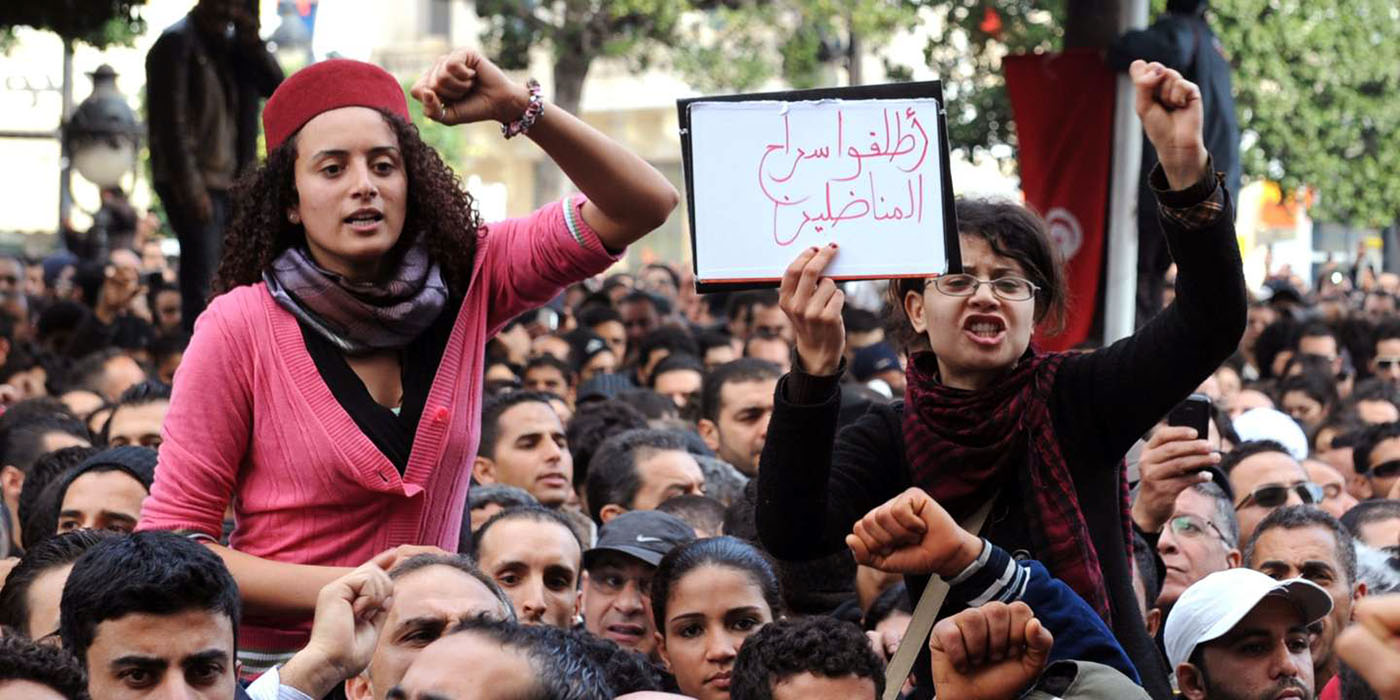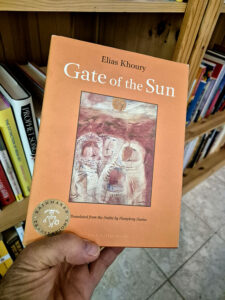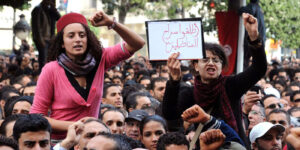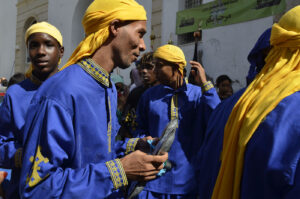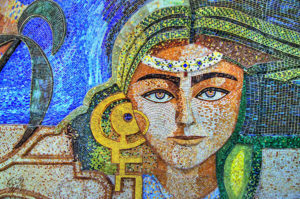Our correspondent in Tunis met with the Tunisian author of the new French-language novel Bel Abîme, a plea against an unjust society. Manaï’s previous novel and the first to appear in English, The Ardent Swarm, was lauded in a translation from Lara Vergnaud.
Sarah Ben Hamadi, Tunis
“I called out to my country from the heart and I pitied you. I told him that we were cursed, that we were lost. I whispered to him that both of us were a beautiful abyss in which dreams were stranded.”
Bel Abîme by Tunisian author Yamen Manaï is a novel that you read in one sitting, a short novel that carries you away with its simple yet powerful style. It contains a compendium of emotions (hatred, anger, injustice, love, hope) and is a cry of anger and revolt against an unjust society. Published by the Tunisian publisher Elyzad, this fourth book by Manaï has already received several awards, including the 2022 Prize for Arabic Literature and the Orange Book Prize in Africa.
The story takes place in Tunis. Manaï gives voice to a 15-year-old adolescent whose first name is never revealed. He is arrested for a crime and taken into custody. As we turn the pages, we gradually understand the reasons for his arrest, and we understand especially the revolt that motivates him in the face of a father who has never stopped humiliating him, and a society that hates the weak.

In our conversation, Manaï explained the success of the novel this way: “Literature renders the intimate public. This character, a teenager in an authoritarian environment, embodies the daily life of many young people, that’s why it resonates with readers.”
In a breathless monologue, the kid deals with his public defender and a psychiatrist in charge of evaluating his condition with aggression but also with a lot of humor and irony. “We [Tunisians] are the champions of self-mockery,” says Manaï, explaining this seemingly contradictory narrative. “Next to this known trait in Tunisians that is humor, there is patriarchy, rage, aggressiveness, pessimism, gloom that are new in the landscape. The rage comes from a great post-revolutionary frustration with the heritage of derision. The book bears this antinomy.”
Buoyed only by the voice of a teenager, the author used the monologue as a long cry of rage and impotence in the face of injustice and broken dreams. “The monologue imposed itself on me. The first sentence set the tone, it opened the way for me,” says Manaï, who admits to having finished writing the manuscript in a week. “The voice of the adolescent is a raw voice, without concession. Only one voice can open the floodgates of a youth that has no right to give its opinion.” And it is precisely through the voice of the teenager that the author makes this youth speak, and makes his malaise resonate.
“I called out to my country from the heart and I pitied you. I told him that we were cursed, that we were lost. I whispered to him that both of us were a beautiful abyss in which dreams were stranded” we read in the book. The words are heartbreaking, and the observation is harsh, though the author nuances this aspect during our exchange. “I make a teenager speak, the character is not necessarily the novelist, for whom everything is dark.”
Despite the novelist’s attempt to remain detached from his character, Manaï’s view of society remains frank and uncompromising: “I lived in Tunisia,” he says, “where I was told that its only wealth was its youth, but yet nothing has been done to provide resources and to free this youth to be an asset.”
In Bel Abîme, we are confronted with physical and moral violence, both that suffered in the boy’s home and encountered on the street. While reading the book, one cannot help but draw a parallel between the situation of the teenager and that of Tunisian society. Manaï squarely centers the novel on a post-revolutionary Tunisia consumed by its demons; the fear, the brutality, the inequalities and the broken dreams. “It is a novel that questions but does not provide answers,” he says. The novelist waxes nostalgic: “When we look at Tunisia before [the revolution], we wonder how and when we lost our way. Nobody has the answer. We had a trajectory full of inertia, with multiple factors. We’d do well to study recent history, because without hindsight, we fall into the same pattern.”
Author of four novels, distinguished by several awards. Manaï is one of the most promising French-speaking Tunisian authors of his generation. An engineer by training, still practicing his profession, he believes that “literature comes along to fill certain frustrations that no work can fill.” For him, each book is “its own catalyst.”
His previous novel, The Ardent Swarm, won numerous awards, but although all his novels are written in French, Manaï does not hide his love for his native language, Arabic. Raised bilingually, growing up in Tunisia he was influenced by great authors such as the Egyptians Najuib Mahfouz, Taoufik El Hakim and Ihsen Abdel Koddous, and the Tunisians Ali Douaji and Mustapha Kheraief, as well as the great poet Abu Al Kacem Chebbi, of whom he confesses to being a great admirer. When asked about the choice of the French language despite his attachment to Arabic literature, he admits, “I never really chose to write in French, but I wonder about the reasons for this impulse, why my unconscious pushed me towards this language? Maybe it’s because Arabic is coated in sadness, that the Arab world is awry, or maybe it’s because books are marginalized in this region of the world. The reasons are profound, but difficult to explain.”
Having believed in the Tunisian revolution of 2011, Yamen Manaï does not hide his disappointment today, arguing that “the situation could be better in many ways.” Like many, the recent political developments in his country do not seem to reassure him. “I hope that recent experience has taught us that tyrants are paper tigers,” he says, before adding a note of hope: “There are still people very active and convinced of the nobility of social struggle. I do not despair of my country.“



